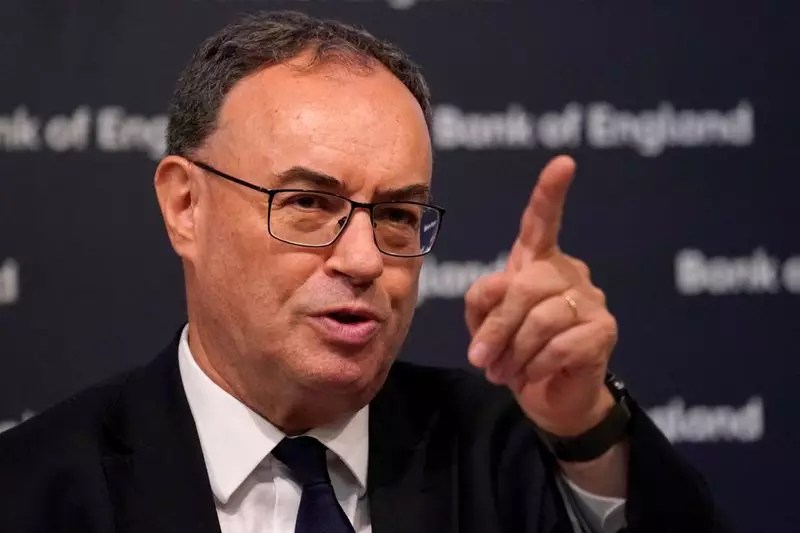The economic landscape in the UK is undergoing crucial transformations as the Bank of England (BoE) grapples with a complex interplay of inflation rates and geopolitical tensions. Recent indications suggest that inflationary pressures may be diminishing, creating an opening for the Bank to consider more aggressive monetary policy changes, particularly in terms of interest rate cuts. BoE Governor Andrew Bailey expressed a sense of cautious optimism regarding inflation trends, acknowledging that they have turned out to be less persistent than initially expected. This shift has prompted discussions about a potential acceleration in the Bank’s approach to reducing interest rates, which currently stand at 5% following a recent cut after a four-year hiatus.
Geopolitical Risks and Market Dynamics
However, the path to significant economic adjustments is fraught with hazards, particularly due to ongoing conflicts in the Middle East. As Bailey pointed out, while there exists a robust framework to stabilize the oil market, the volatility stemming from geopolitical events poses substantial risks. Should the situation escalate, oil prices may spike, affecting not only market stability but also inflation predictions. The intricate balance that the BoE must maintain becomes evident when considering how these external conflicts can reverberate through seemingly isolated economic data.
Bailey’s insights into the current state of the oil markets highlight a critical vulnerability in the UK’s economic framework. With investor sentiment leaning toward a possible rate cut in the upcoming November meeting, market participants remain on edge, aware that external crises could quickly derail any plans for economic easing. The potential instability in oil prices, coupled with fluctuating demand and supply dynamics, adds yet another layer of complexity for the BoE.
The Future of Interest Rates and Economic Growth
The implications of these factors for the broader economy are significant. While a reduction in interest rates generally aims to stimulate economic growth by making borrowing cheaper, any sharp rise in oil prices due to geopolitical strife might counteract these benefits. Higher oil prices could translate into increased production costs, driving inflation back up and making it difficult for the BoE to achieve its economic objectives.
Moreover, the market’s current expectations surrounding a potential interest rate decrease highlight the precariousness of the situation. If inflation trends shift unexpectedly, or if international tensions worsen, the central bank may find itself needing to reverse course on rate cuts, which could stymie growth and undermine investor confidence. The BoE’s ability to navigate this intricate web of influences will be critical in determining the trajectory of the UK economy in the coming months.
While there are encouraging signs regarding inflation, the Bank of England’s path forward is anything but straightforward. Bailey’s remarks encapsulate the essence of the current economic environment—one that demands a delicate balancing act. The interplay of domestic monetary policy decisions and the tumult of international developments could create a period of significant uncertainty. As the situation evolves, both policymakers and investors alike will need to remains vigilant, prepared to respond to changes in the economic landscape as they unfold. The coming months will be pivotal in shaping the UK’s economic future amidst these intertwined challenges.


Leave a Reply